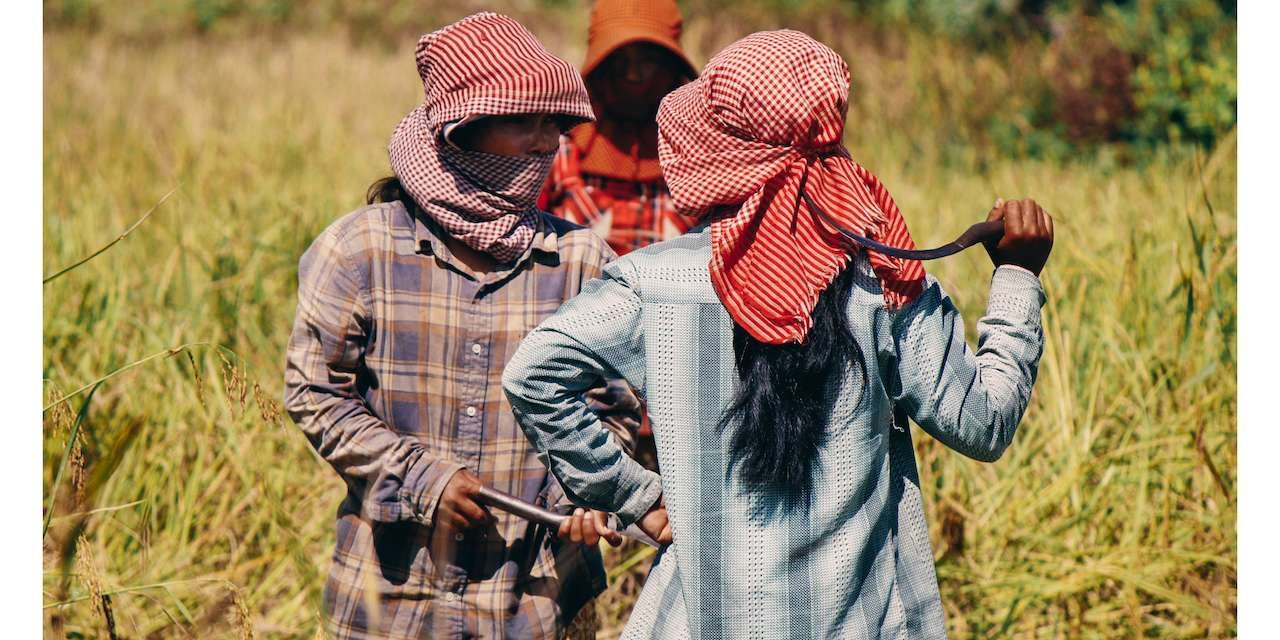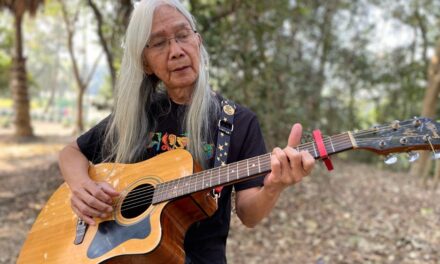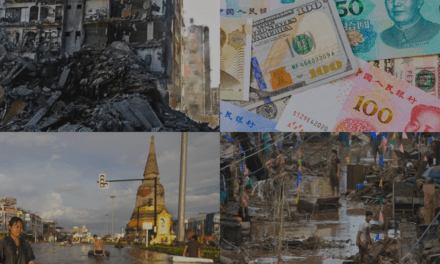By Joseph Purugganan
Presentation delivered at the Regional Consultation, Training, and Meeting of La Via Campesina Collective on Human Rights, 27 March 2018 in Jakarta, Indonesia
On behalf of Focus on the Global South let me begin by commending all the hard work that has been put into the Declaration on Peasant’s Rights; It is truly a remarkable document. Allow me to express our hope not just for the adoption of this declaration by the United Nations, but the full realization of these rights for future generations of peasants and rural people who rely on the land for their life.
It is a remarkable effort to assert the rights of peasants today most especially amidst what is happening around the region and across the globe where we are witnessing the continued erosion, but much more so, the demonization of human rights. Where human rights and fundamental freedoms are now seen as hindrance to development, feeding on the notion that these rights are not important and can be traded off for something more tangible like law and order, fighting drugs and criminality.
We are witnessing a rise of populist authoritarian leaders–strong men–who will promise development, while sowing fear and terror, destroying democratic institutions, and trampling on peoples rights and fundamental freedoms.
Asserting the particular rights of peasants is also a big challenge at a time when the idea that certain people, do not possess rights at all because of who they are and what they’ve become- for example drug addicts, is sadly on the rise again. The extra judicial killings in the Philippines are a sad testament to this, where thousands of lives have been taken away arbitrarily and violently without due process. The victims have also included human rights defenders, land rights activists, environmentalists– farmers, workers indigenous peoples– have all fallen prey to the violence that has been there before but has become so blatant over the past two years in the Philippines.
Very recently, the Department of Justice in the Philippines petitioned the court to declare as terrorist a list of around 600 (although some say the list can be expanded to a thousand) people). The list includes among others Victoria Tauli-Corpuz, the UN Special Rapporteur on the Rights of Indigenous Peoples. The lines between legitimate dissent, legitimate assertion and defense of peoples rights, and terrorism are being blurred, making it more and more dangerous for human rights defenders.
This is the sad reality that we confront in our advocacy for Peasants Rights in the Philippines and the region.
We are also in the midst of what many people are calling a globalization backlash, where people who have been disenfranchised, dispossessed, and negatively impacted by economic policies of globalization like trade liberalization, deregulation, and privatization, are expressing their discontent through the ballot and in the streets. People are fed up with not having decent jobs, low wages, the rising costs of healthcare, education, and food, and poor transportation systems.
Sadly, people are turning to right wing politicians–to the likes of Donald Trump in the US, and Rodrigo Duterte in the Philippines on whom they are rely to address their anxieties. A closer look at the economic policies, however show that there has been very little deviation from the same neoliberal, pro-corporate, anti-poor path.
Globalization has perhaps hit agriculture the hardest, Agriculture’s contribution to development has been declining steadily since the 90’s (some say the era of neoliberal globalization). In Indonesia it is about 14 percent of GDP, and in the Philippines even smaller at 9.7 percent. Even in Thailand, a known agricultural exporter, agriculture’s contribution has been reduced to around 8 percent of GDP according to World Bank estimates (2016).[i]
Globalization has changed the countryside. It has impacted on agricultural production processes, the overall rural economy, and the social relations among peoples in the rural areas.
A number of studies have pointed to the neglect of peasant agriculture as a result of globalization and the dominance of so called modern agriculture, the capital-intensive land extensive agriculture of developed nations.[ii] Imports of cheaper agriculture commodities from developed nations flooded the markets, and many small farms were unable to compete. Governments meanwhile shifted their policies away from supporting agriculture. Peasant agriculture was thus hit with a double whammy, what Walden Bello called the unmitigated disaster resulting from trade liberalization combined with declining public investment in agriculture.[iii]
Some scholars assert that all of these changes—in production processes, in technology, in the whole farming economy, the penetration of capital in the rural areas–have diminished the importance of peasant agriculture even in the area of staple food production.[iv] La Via Campesina challenges this and has given its counter assertion on the continued significance of peasant agriculture. In the draft Declaration, La Via Campesina asserts that “the past, present and future contribution of peasants and other people working in rural areas to development and in conserving and improving biodiversity, which is the basis of food and agricultural production. . and the contribution of peasants to ensuring the right to adequate food and food security.”[v]
In many respects, this is the gist of the fight for recognition of peasants’ rights–the recognition of peasant agriculture’s continued importance and relevance today and for the future.
Today, there is a strong push for what is being called 21st Century trade and investment policies that now give more emphasis on trade in intermediate goods, and in global value chains. A big part of this policy environment is the push for mega free trade agreements (FTAs) like Regional Comprehensive Economic Partnership (RCEP), the EU-Indonesia Comprehensive Economic Partnership Agreement (CEPA), and the revived TPP (rebranded as the comprehensive and progressive TPP), which are instruments of the corporate agenda. These FTAs constitute a threat to peasants’ rights, to human rights in general, and to peoples’ sovereignty.
The most critical issues are around the most ambitious elements of these mega deals, the ones that distinguish them from older generation free trade agreements.
The first issue is on intellectual property rights (IPR). Health advocates have rallied against these FTAs and their IPR provisions and their impact on access to medicines and public health.
The IPR chapter is also seen as undermining farmer’s rights. The IPR chapter in RCEP will force countries to comply with UPOV 91[vi]–an international convention that has been highly criticized by farmers organizations and support groups for “eliminating the right of farmers to save privatized seeds and also limited what other plant breeders can do with that seed.”[vii] This goes against Article 19 of the Declaration on the right to seeds.
Another major issue across the region is the investor state dispute settlement mechanism (ISDS), a provision in the investment chapter of RCEP and all new generation FTAs. This too runs counter to the fulfillment of peasants’ rights.
The declaration asserts the general obligation of States to “take measures to prevent transnational corporations (TNCs) and other business enterprises nullifying and impairing the enjoyment of the rights of peasants.”[viii]
ISDS will give corporations–many of which have annual revenues bigger than the GDPs of most countries in ASEAN, and therefore have more economic power compared to governments in these countries–the right and even more power to sue governments over public policies and regulations in secret, ad-hoc tribunals. These tribunals or more appropriately, corporate courts have handed down million dollar rulings that have penalized governments over regulatory actions to defend public health, pursue more inclusive development, protect the environment, and public interest in general.
It is important to highlight at this point the need to link the efforts towards a Declaration on Rights of Peasants with the campaign also at the UN Human Rights Commission towards a legally binding treaty on TNCs and their human rights obligations. These are parallel and complementary efforts towards the assertion of peoples’ sovereignty and rights and seeking accountability and access to justice for victims of corporate crimes.
21st century trade also emphasizes global value chains. In agriculture–looking at everything from the production and use of seeds, the access and control of land, the access to production technologies–we see again how big corporations dominate the supply chain.
In a paper on corporate capture of agricultural production, Yoke Ling of Third World Network (TWN) pointed out “Six corporations4 control global markets for industrial seeds/agrochemicals with collective sales of more than US$ 65 billion a year, and accounting for more than 75 percent of all private sector agriculture research in seeds and chemicals. Three of these companies (Monsanto, Dupont and Syngenta) control 55 percent of the global seeds market while three others (Syngenta, Bayer and BASF) control 51 percent of agrochemical production. “[ix]
Thus, according to Yoke LIng “a handful of corporations control the entire chain of production from research to the final products. This market power also enables these corporations to get legislatures to pass laws that turn seeds into private “intellectual property”, penalize small farmers for saving, re-planting and selling seeds, and dilute efforts to regulate genetically engineered organisms”[x]
Another issue that is relevant to the rights of peasants, as it impacts directly on the issue of land and land rights- is the strong push for infrastructure investments. China is pushing for its huge belt and road initiative, and the new silk round; massive infrastructure projects linking land masses and maritime routes in the name of development. Infrastructure investment is also advanced in the name of a bigger agenda of connectivity; infrastructure projects addressing the need for physical connectivity, while the harmonization of rules and standards, like IPR, address the need for institutional connectivity. As the National Chair of the Commission on Human Rights Ahmad Damanik underscored today, these infrastructure and development projects threaten to evict peoples and communities from their lands.
The idea of land management and administration is being advanced in order to facilitate more land investments thereby giving more lands to the hands of corporations.
There are strong political and economic forces whose agenda run counter to the full realization of peasants’ rights, and who will exert their power and influence to derail our campaign.
I have outlined just a few of the challenges undermining peasants’ rights. These are the challenges that our campaign confronts. Our strong assertion of these rights of peasants is a big contribution to pushing back the repression and the criminalization of peasants. Our strong assertion on the rights of peasants is a contribution to the dismantling of corporate power and the strengthening of peoples’ sovereignty.
[i] Agriculture Value added as percentage of GDP. World Bank data. Accessed in March 2018. https://data.worldbank.org/indicator/NV.AGR.TOTL.ZS?locations=TH
[ii] As cited in Espinel, Ramon. (2018). Multifunctionality in Peasant Agriculture: a means of Insertion into Globalization.
[iii] Bello, Walden, Multilateral Punishment: The Philippines in the WTO 1995-2003. Focus on the Global South. June 2003.
[iv] As cited in Espinel, Ramon. (2018). Multifunctionality in Peasant Agriculture: a means of Insertion into Globalization.
[v] Advanced Edited Version. Revised Draft UN Declaration on the Rights of Peasants and other people working in rural areas. February 2018. www.ohchr.org/Documents/…/A_HRC_WG.15_5_2.pdf
[vi] UPOV is the French acronym for The International Union for the Protection of New Varieties of Plants. UPOV91 stands for the 1991 Act of the International Convention for the Protection of New Varieties of Plants (UPOV 1991)
[vii] GRAIN (2015) UPOV 91 and other seed laws: A basic primer on how companies intend to control and monopolize seed. Online: https://www.grain.org/article/entries/5314-upov-91-and-other-seed-laws-a-basic-primer-on-how-companies-intend-to-control-and-monopolise-seeds
[viii] Advanced Edited Version. Revised Draft UN Declaration on the Rights of Peasants and other people working in rural areas. February 2018.
[ix] Yoke Ling, Chee. Corporate capture subverts production and consumption transformation. Spotlights on the Sustainable Development 2016.. Social Watch.2016. http://www.socialwatch.org/node/17285
[x] Yoke Ling, Chee. Corporate capture subverts production and consumption transformation. Spotlights on the Sustainable Development 2016.. Social Watch.2016. http://www.socialwatch.org/node/17285










